
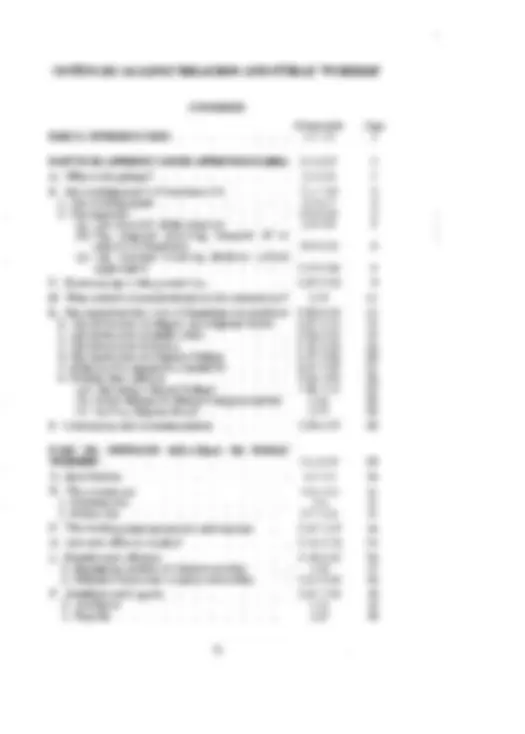

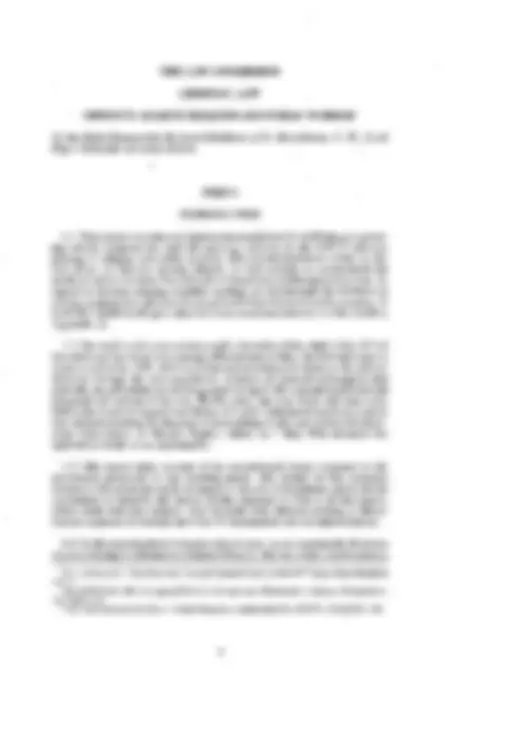
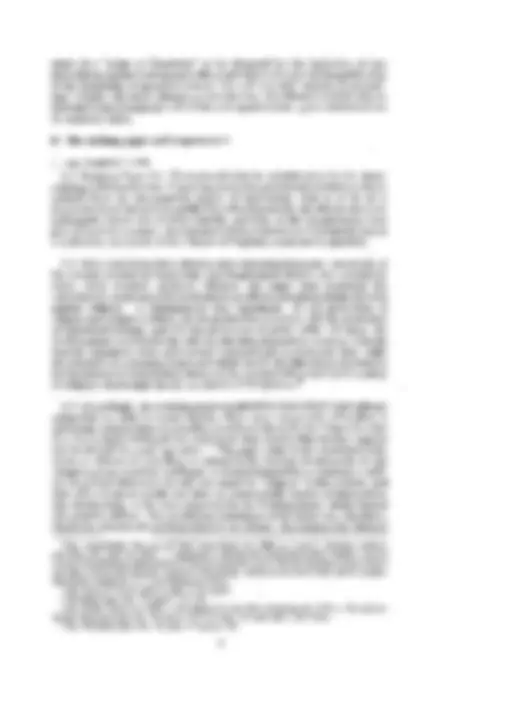
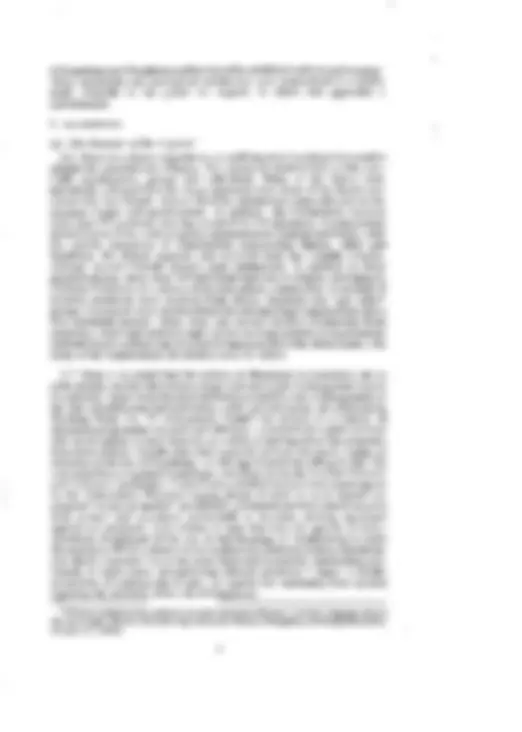
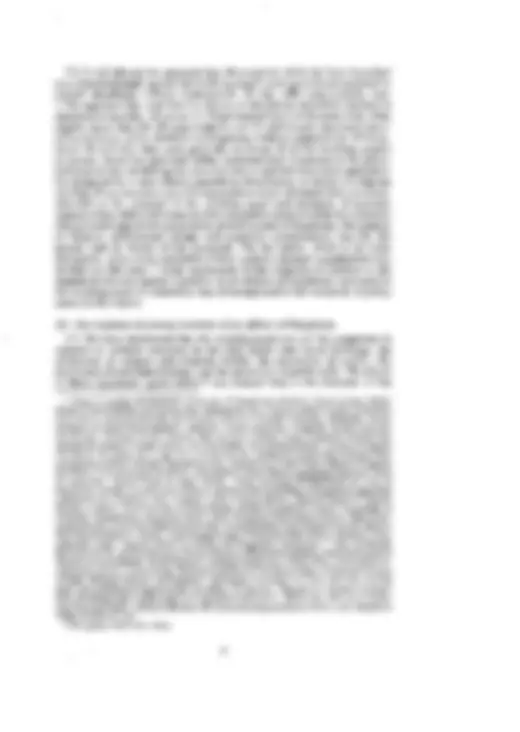
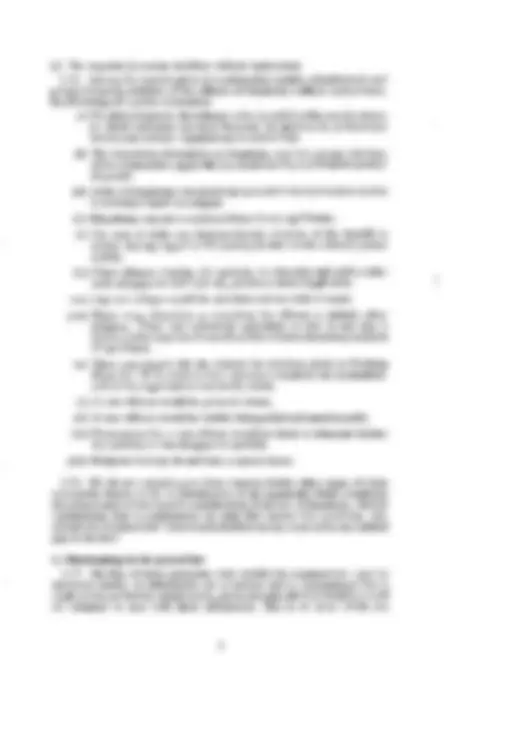
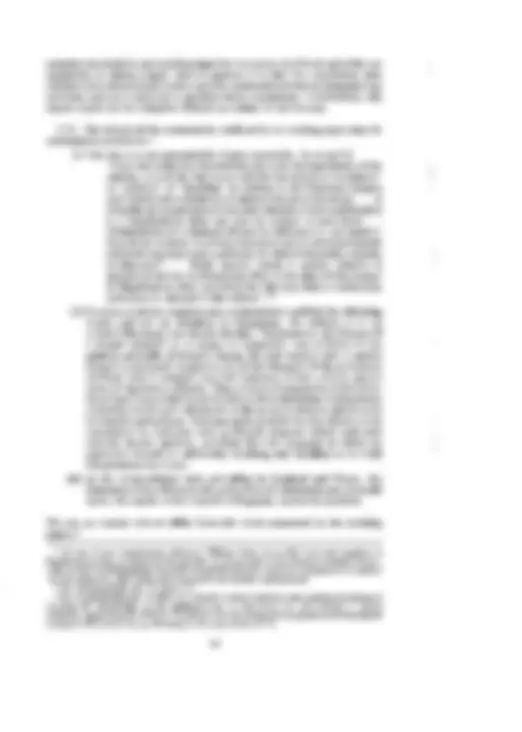
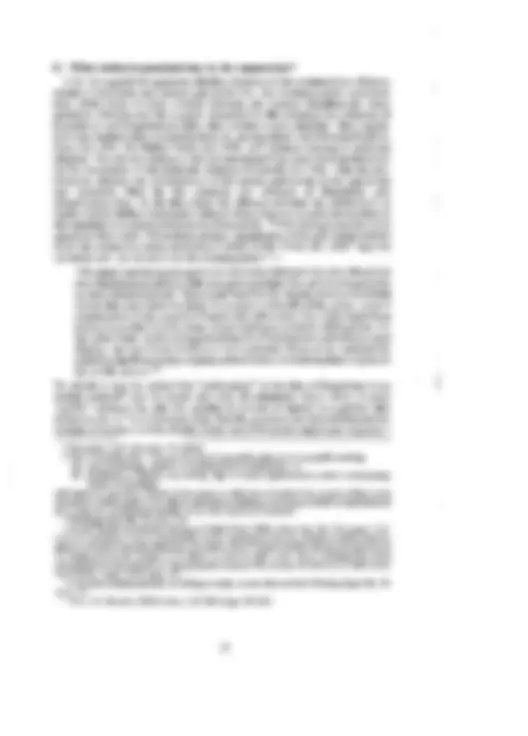
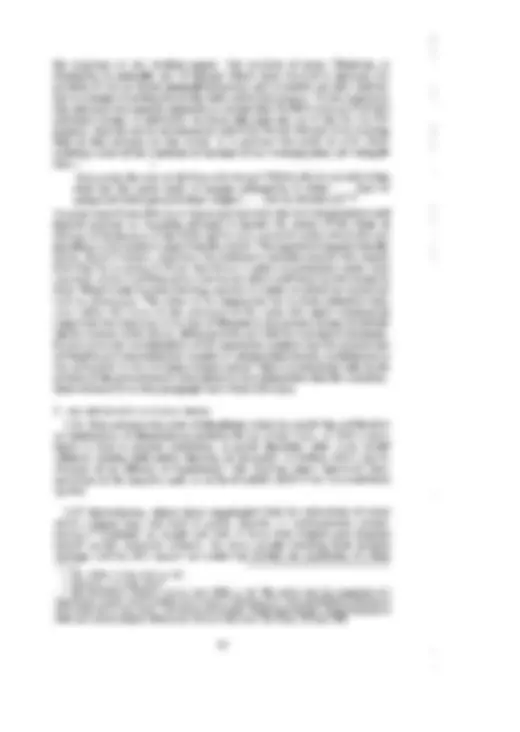
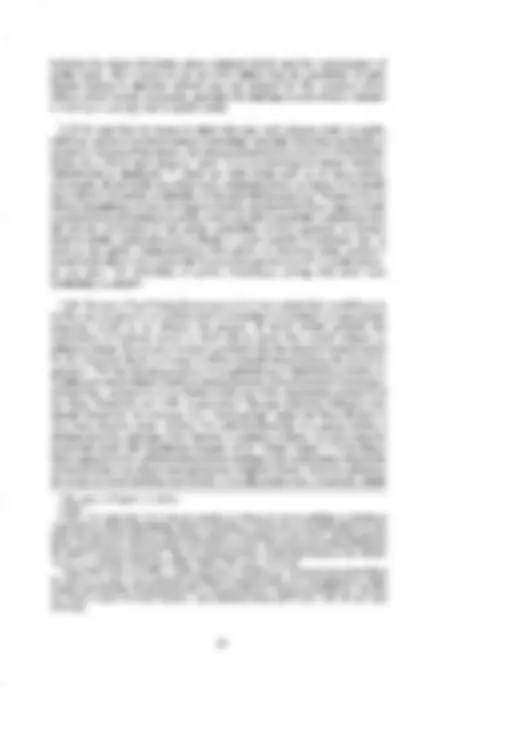
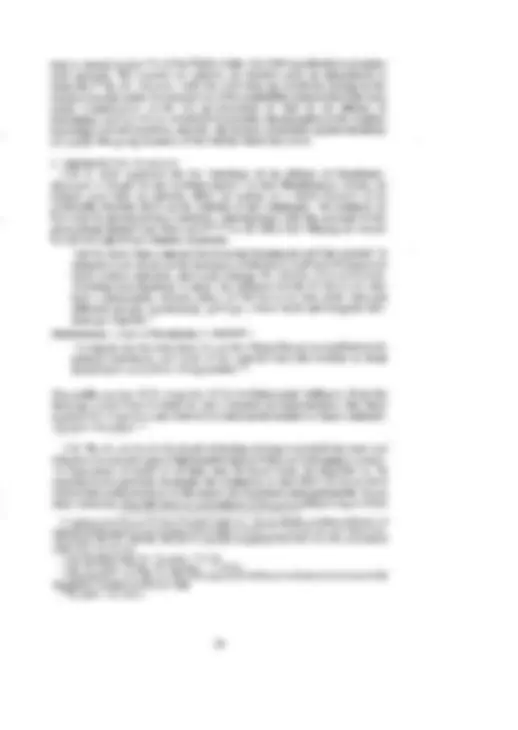
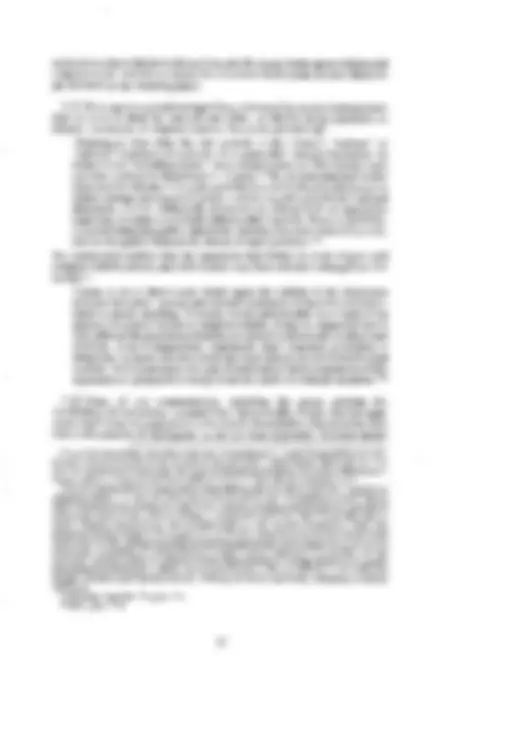
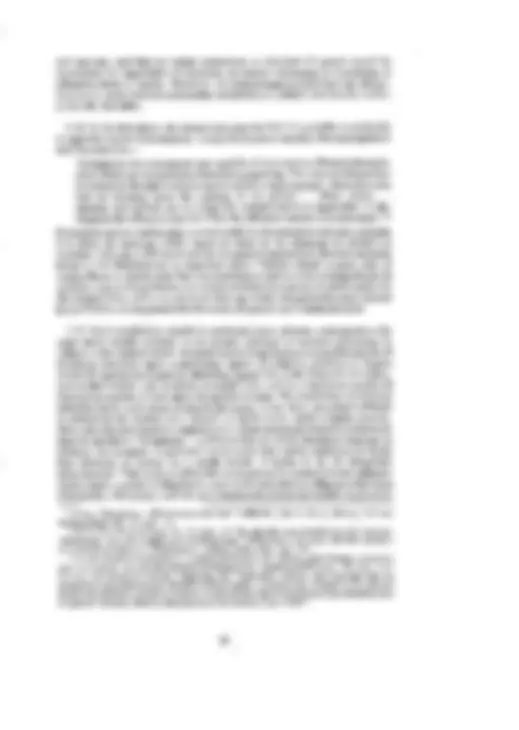
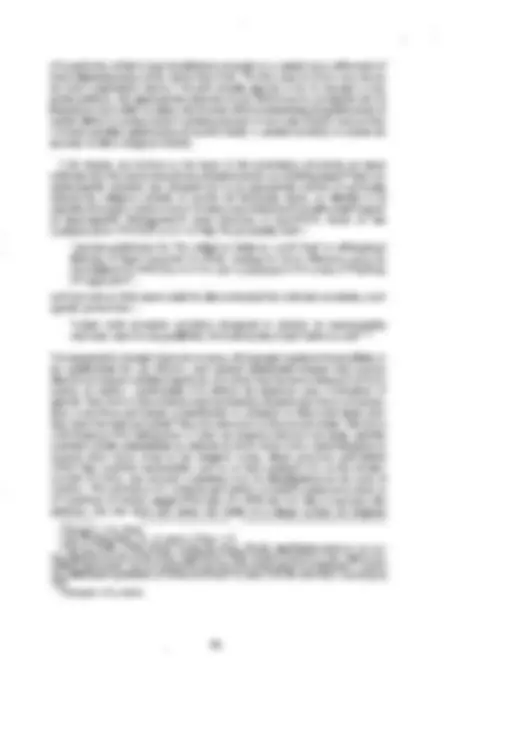
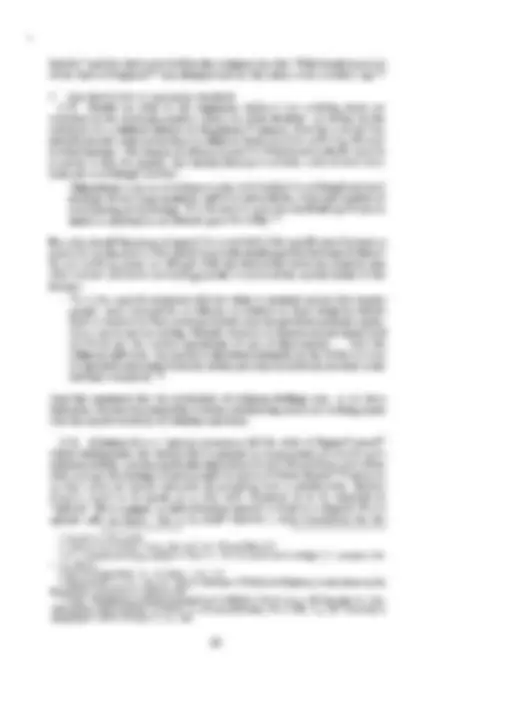
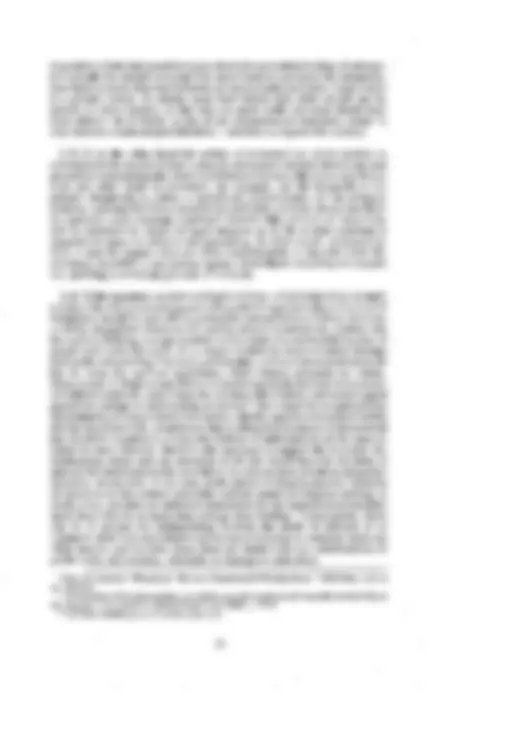
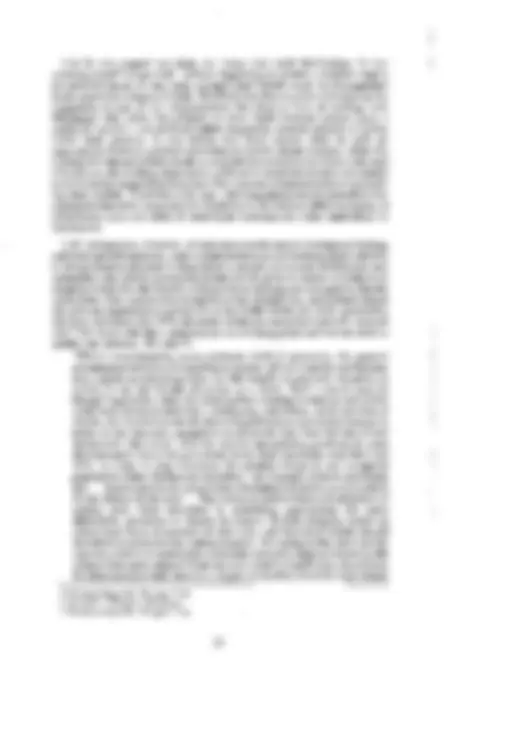
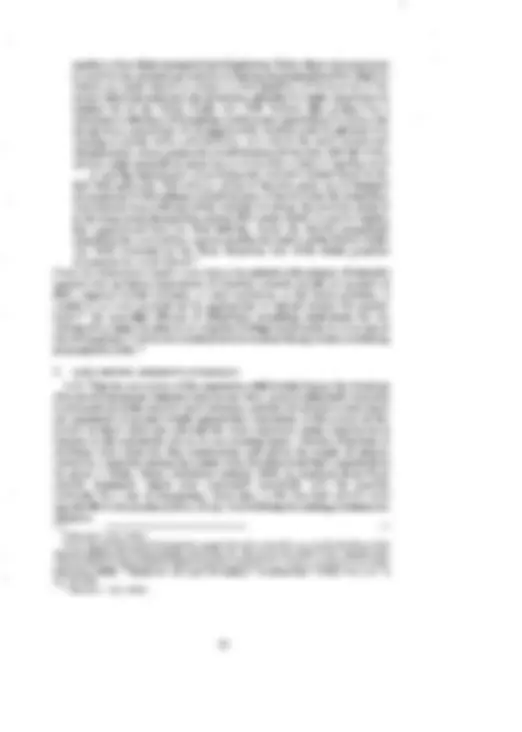
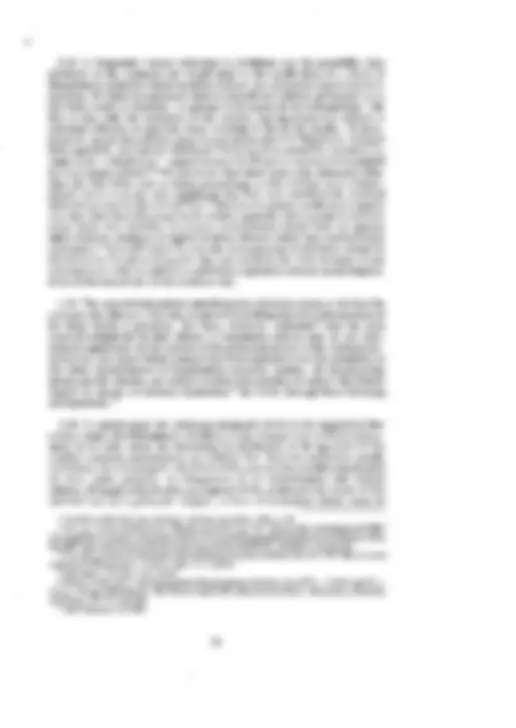
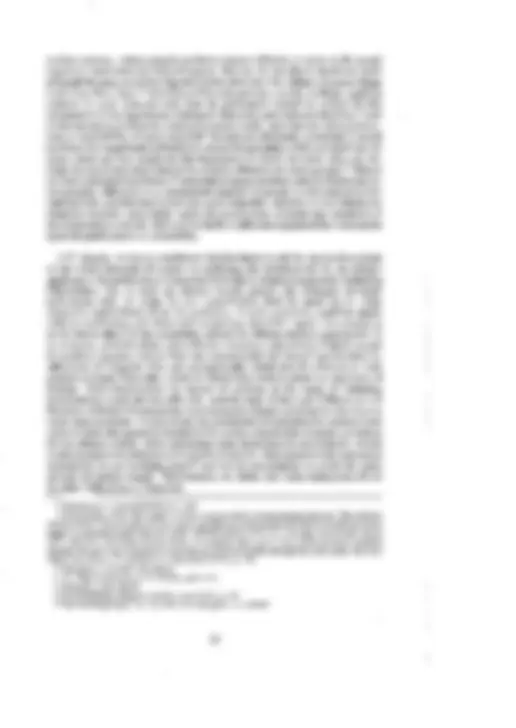
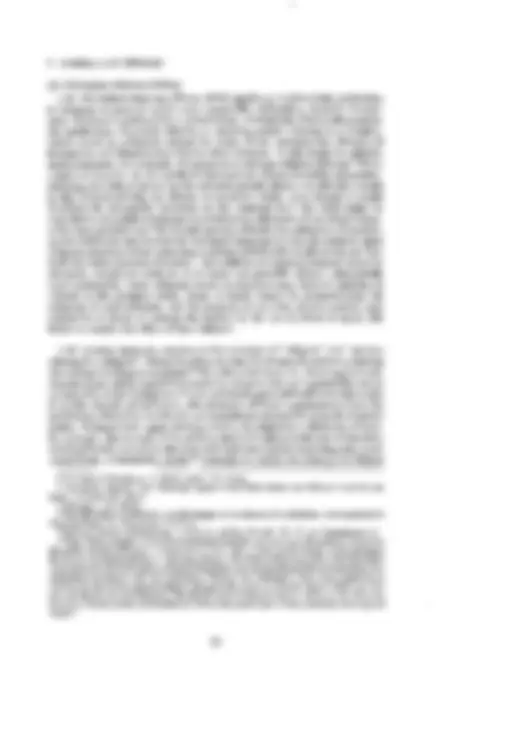
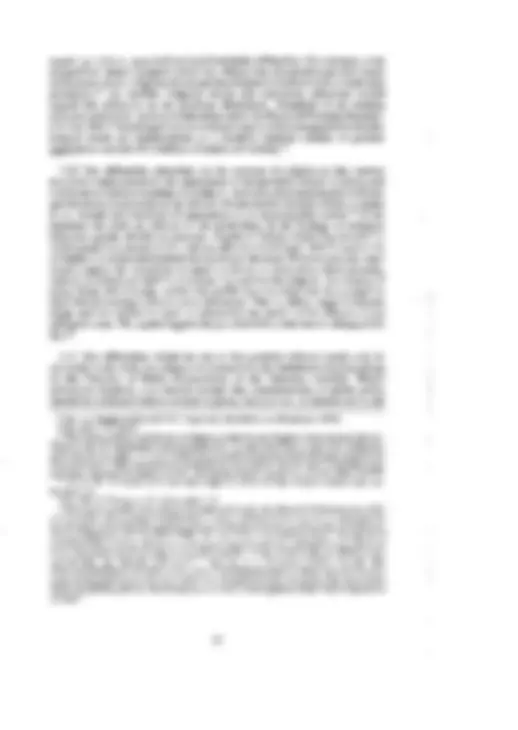
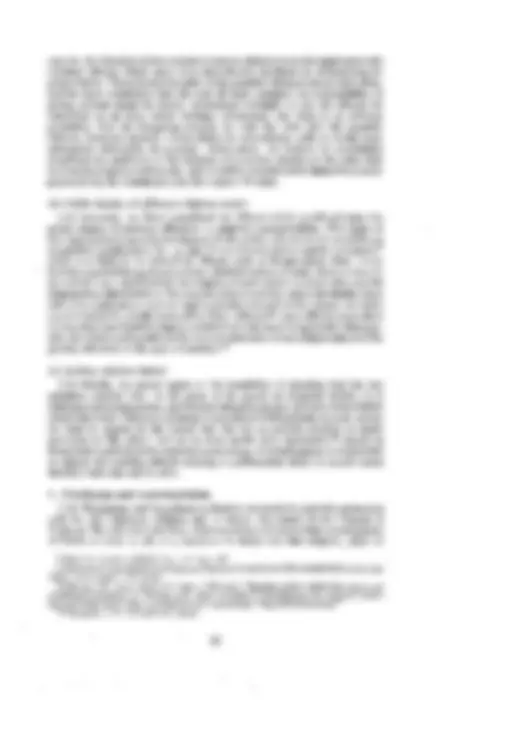
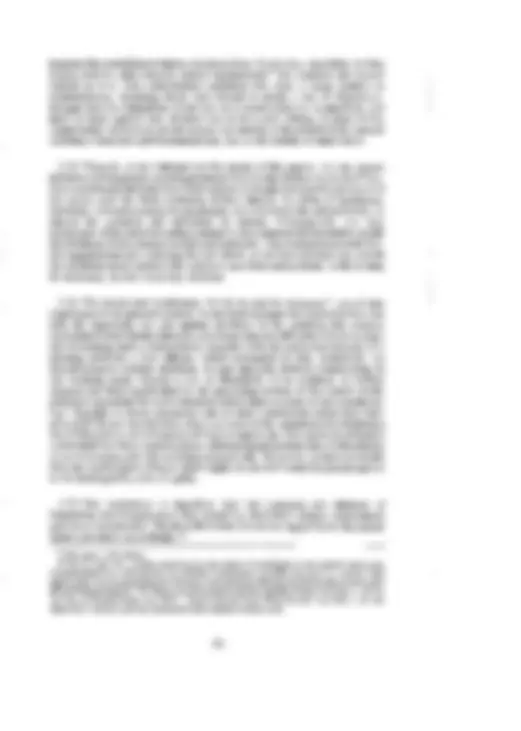
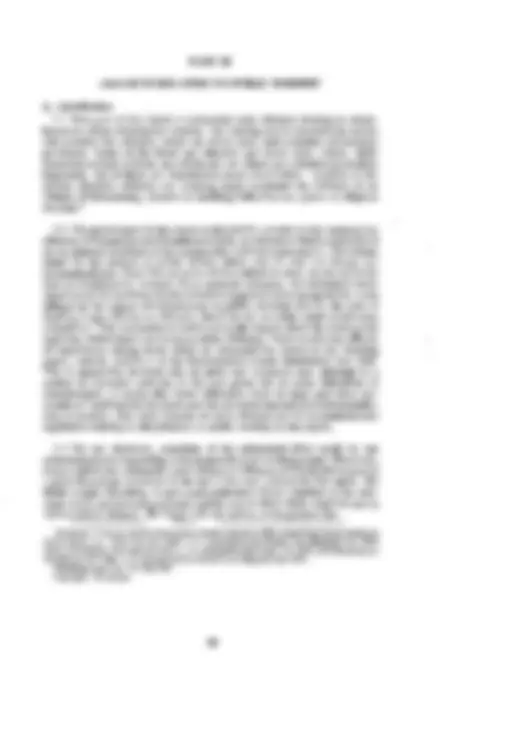
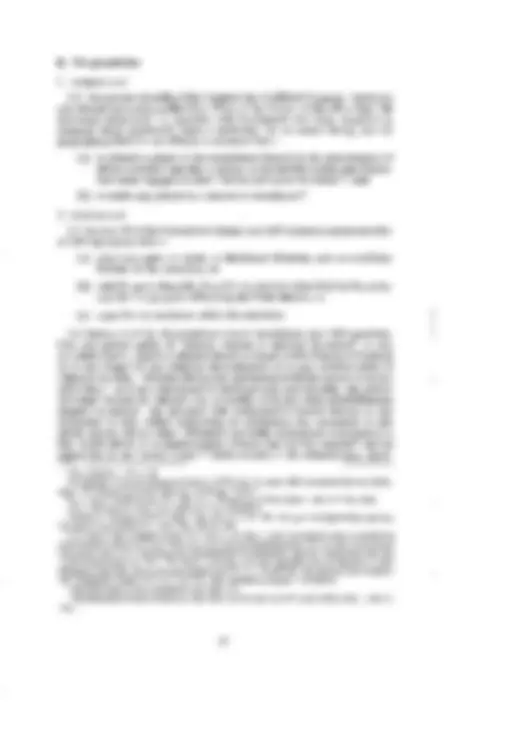
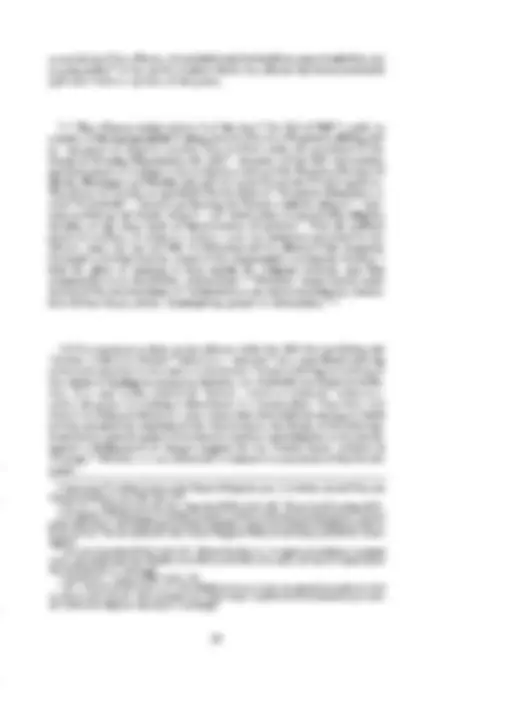
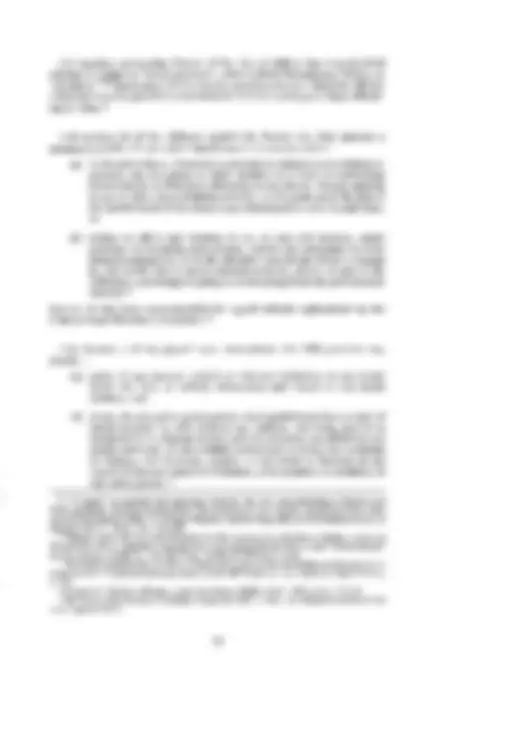
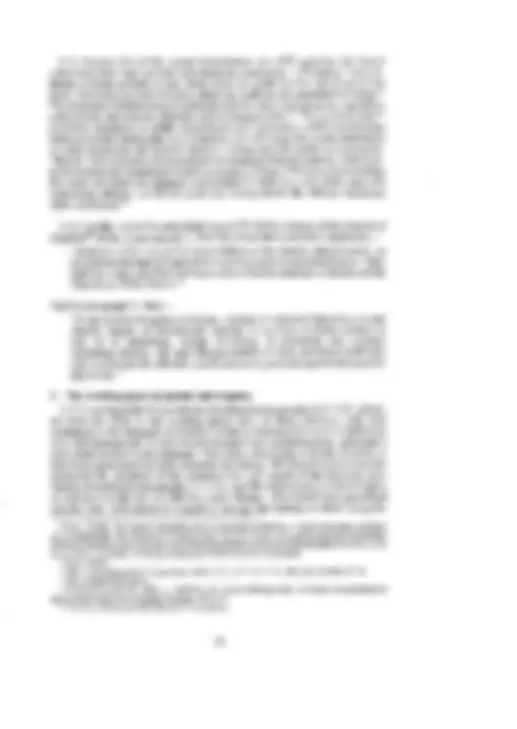
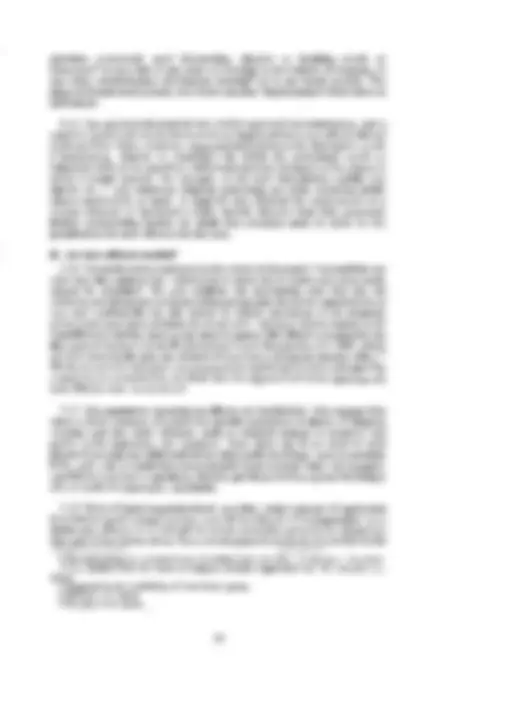
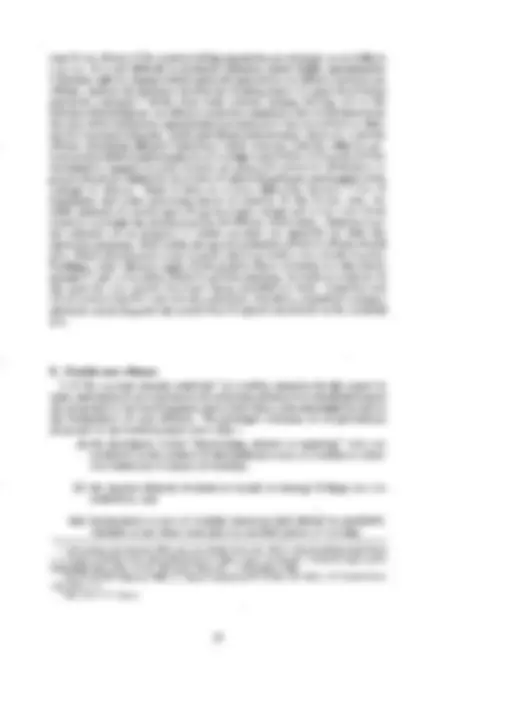
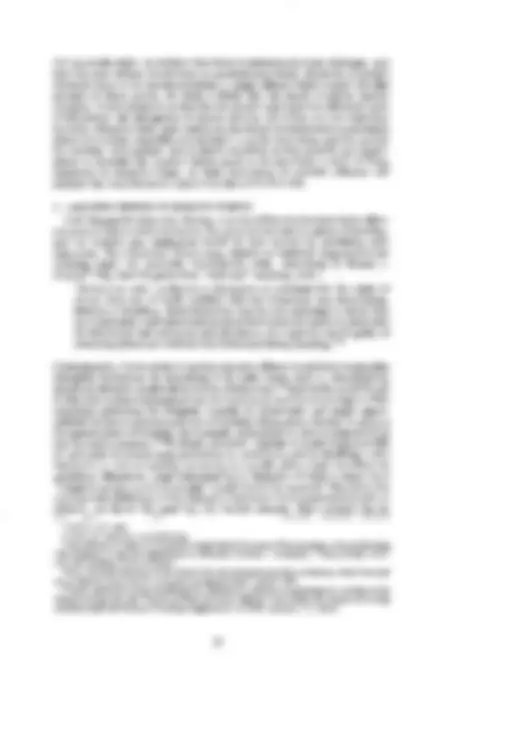
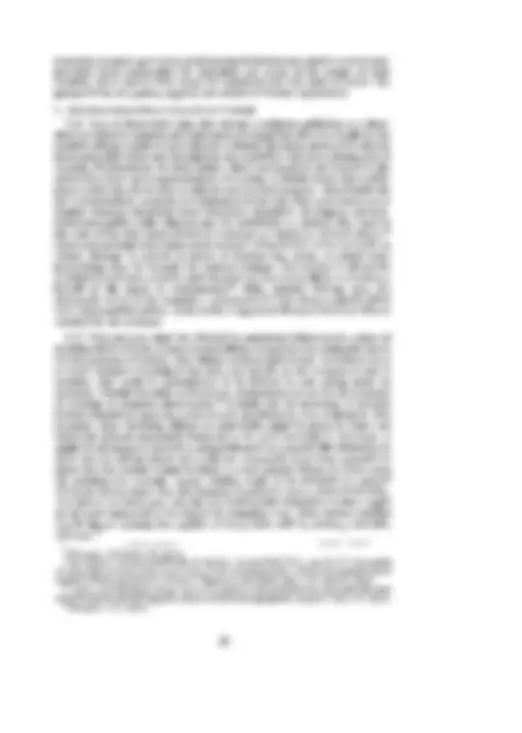
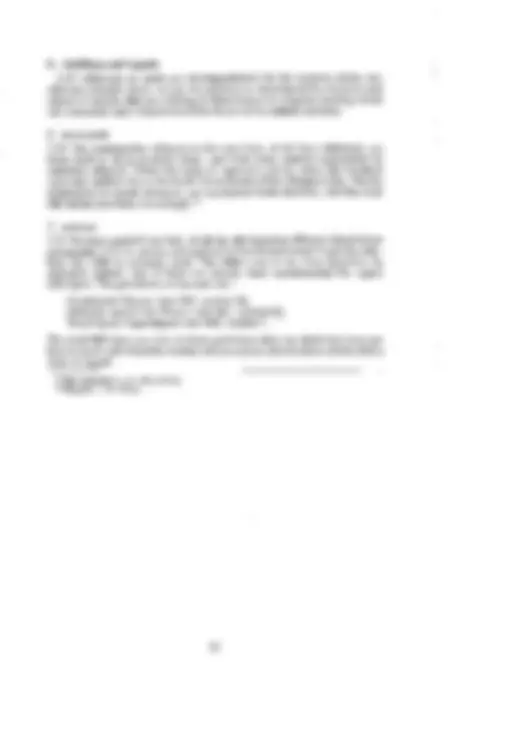
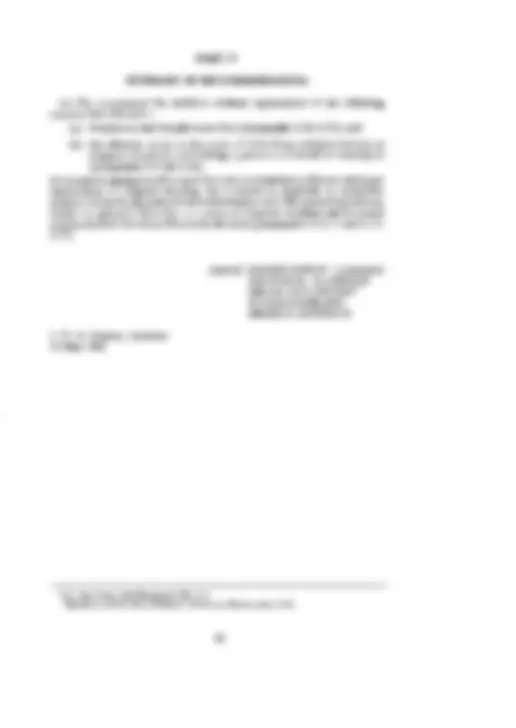
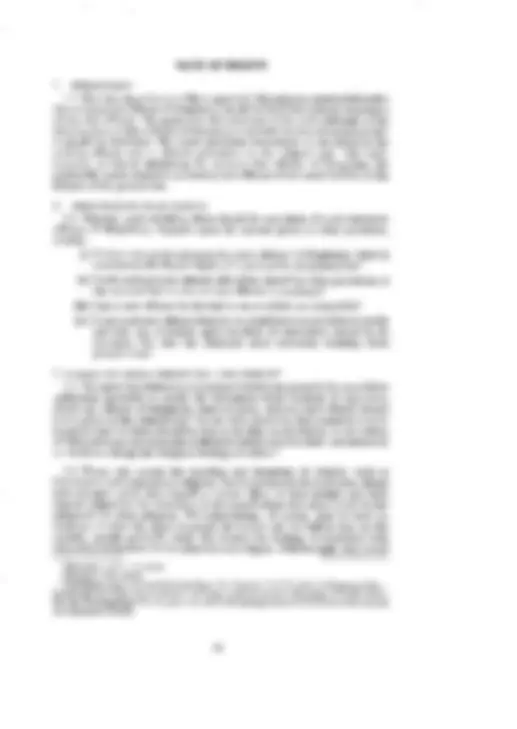
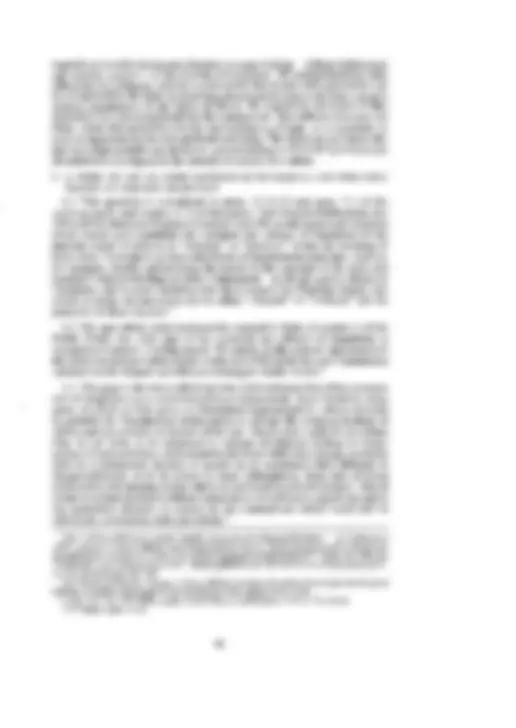
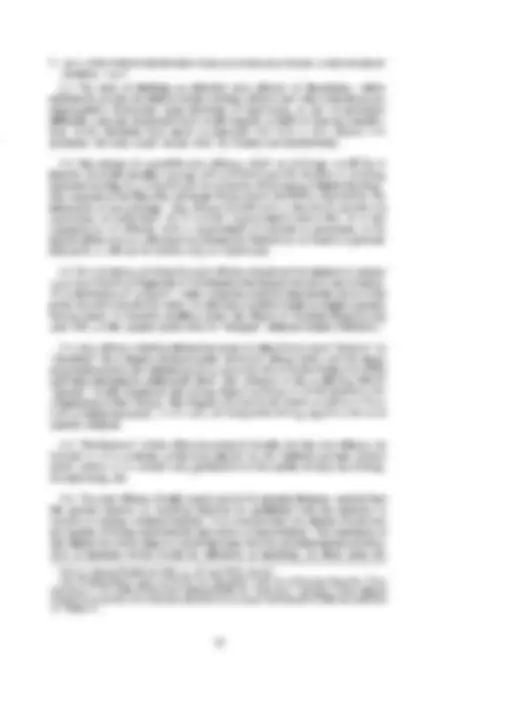
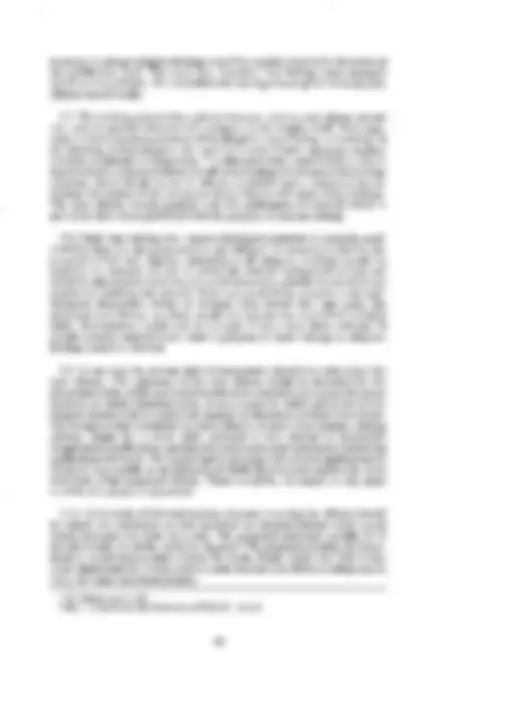
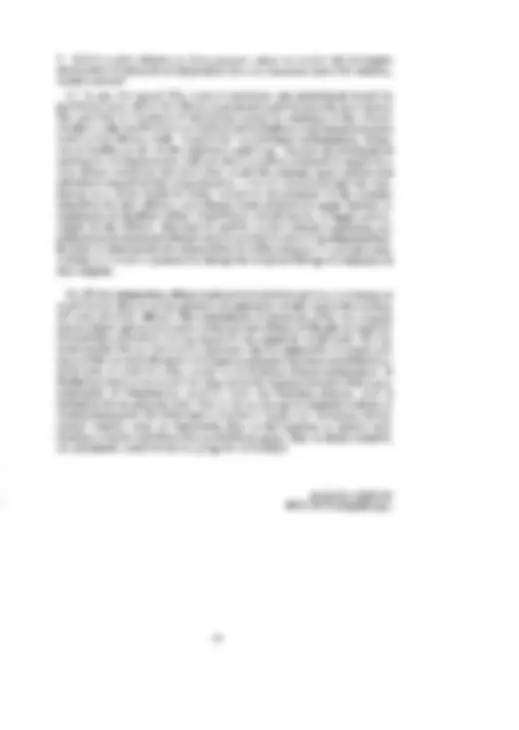
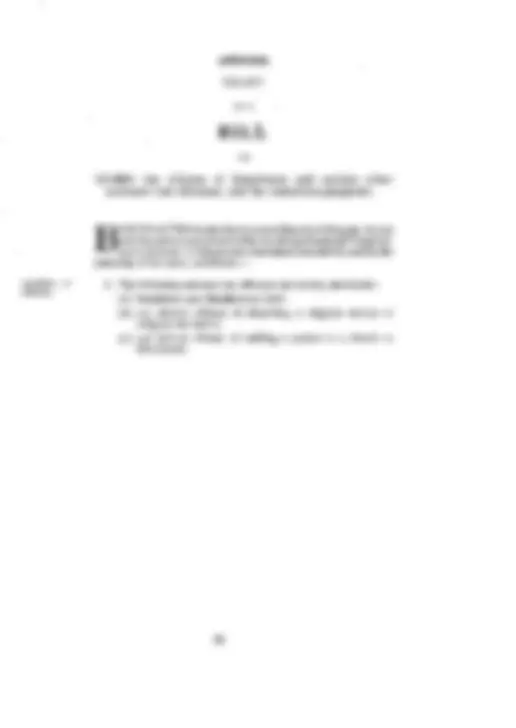




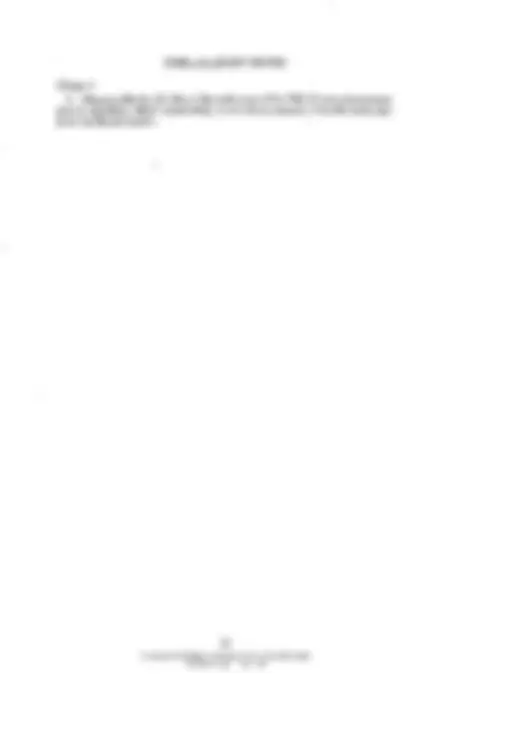
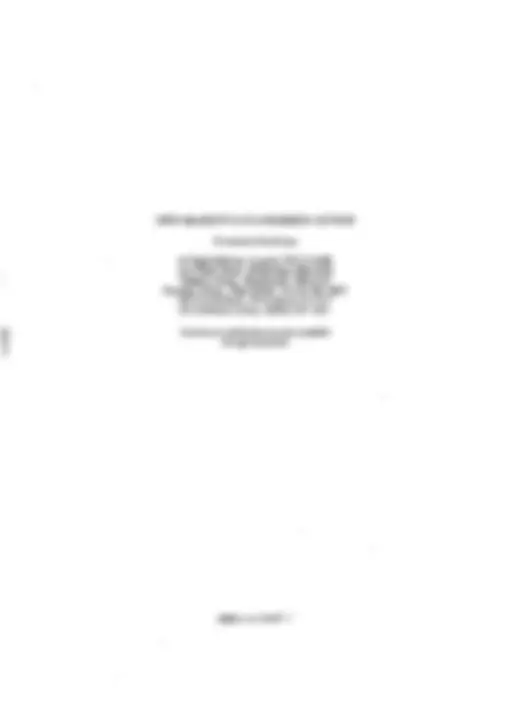


Study with the several resources on Docsity

Earn points by helping other students or get them with a premium plan


Prepare for your exams
Study with the several resources on Docsity

Earn points to download
Earn points by helping other students or get them with a premium plan
Community
Ask the community for help and clear up your study doubts
Discover the best universities in your country according to Docsity users
Free resources
Download our free guides on studying techniques, anxiety management strategies, and thesis advice from Docsity tutors
Recommendations for abolishing or repealing certain common law and outdated statutory offences related to religion and public worship. It discusses the arguments for and against retaining the crime of blasphemy, focusing on the protection of religion and religious beliefs, and examines the justification for new offences in this area. The document also suggests possible new offences and recommends the abolition and repeal of obsolete offences.
Typology: Schemes and Mind Maps
1 / 56

This page cannot be seen from the preview
Don't miss anything!

















































(LAW COM. No. 145)
Laid before Parliament by the Lord High Chancellor pursuant to section 3(2) of the Law Commissions Act 1965
Ordered by the House of Commons to be printed 18 June 1985
f 4. 9 0 net
The Law Commission was set up by section 1 of the Law Commissions Act 1965 for the purpose of promoting the reform of the law.
The Commissioners are-
Mr. Trevor M. Aldridge.
Mr. Brian J. Davenport, Q.C.
Professor Julian Farrand.
Mrs. Brenda Hoggett.
The Secretary of the Law Commission is Mr. J. G. H. Gasson, and its offices are at Conquest House, 37-38 John Street, Theobald’s Road, London WClN 2BQ.
Paragraphs Page PART IV: SUMMARY OF RECOMMENDATIONS 4.1 40
APPENDIX: Draft Blasphemy Bill and Explanatory
iv
To the Right Honourable the Lord Hailsham of St. Marylebone, C. H., Lord High Chancellor of Great Britain
1.1 This report contains our final recommendations for abolishing or repeal- ing certain common law and old statutory offences in the field of offences relating to religion and public worship. The recommendations relate, in the first place, to offences against religion. In that context we recommend the abolition of^ the common law offences of blasphemy and blasphemous libel. In regard to offences relating to public worship, we recommend the abolition of certain common law offences concerned with disturbances to public worship. A draft Bill which would give effect to these recommendations is to be found in Appendix A.
1.2 Our work in this area commenced in the wake of the trial in July 1977 of the editor of Gay News' on a charge of blasphemous libel, the first such case to come to trial since 1922. After a preliminary invitation for views on the subject initiated through the correspondence columns of selected newspapers and journals, we published our working paper in April 1981containing provisional proposals for reform of the law. By this time, the Gay News case had come before the Court of Appeal and House of Lords.2Substantial work on a report was delayed pending the disposal of proceedings in this case before the Euro- pean Commission of Human right^,^ which on 7 May 1982 declared the application made to be inadmissible.
1.3 This report takes account of the exceptionally heavy response to the provisional proposals in our working paper. The weight of that response related to the proposals made in regard to the law of blasphemy and it will be convenient to describe the nature of that response in Part I1 of this report, which deals with that subject. Part 111 deals with offences relating to distur- bances in places of worship and Part IV summarises our recommendations.
1.4 In this introduction it remains only to note, as we customarily do insour reports relating to substantive criminal offences, that our work is undertaken as
R. v. Lemon, R. v. Gay News Ltd., CentralCriminal Court, 11 July 1977 (JudgeKing-Hamilton
See [1979] Q.B. 10(C.A.) and [1979] A.C. 617 sub nom. Whitehouse v. Lemon, Whitehouse v.
Gay News Ltd.and Another v. United Kingdom. Application No. 8710/79,5 E.H.R.R. 123.
Q.C.).
Gay News Ltd.
A. What is blasphemy?
2.1 There is no single, comprehensive definition of the common law offence of blasphemy and its written form of blasphemous libel, and none was offered by the House of Lords in the case of Whitehouse v. Lemon (“the Guy News case”).’ But the trial judge in that case said in the course of his summing up that blasphemous libel is committed if there is published any writing concerning God or Christ, the Christian religion, the Bible, or some sacred subject, using words which are scurrilous, abusive or offensive and which tend to vilify the Christian religion and therefore have a tendency to lead to a breach of the peace. And Lord Scarman in that case2 approved the definition in Stephen’s Digest of^ Criminal Law3^ which differs only by omitting from the definition offered by the trial judge the reference to a tendency to lead to a breach of the peace; this, Lord Scarman said, was no more than a reminder of the character of the offence rather than an essential element of it.4 Both definitions empha- sise the strongly offensive character that material must possess in order for it to be penalised by the common law, which distinguishes the legal definition of blasphemy from its far broader dictionary meaning of any “impious or profane talk”.5 Having regard to the character of the response to our working paper which we describe below, it is worth emphasising here that this report is concerned only with the common law offence: it has no bearing upon and makes no recommendations affecting the legal position relating to what some may consider to be distasteful language in the media or elsewhere save in so far as that language may fall within the bounds of the offence of blasphemy as described above.
2.2 Our working paper contained a detailed examination of the history of this offence and of its constituent elements,6which we do not repeat here. For present purposes it is sufficient to note, first, that it appears that the offence protects only the Christian religion, together with the rituals and doctrines of the Church of England.7 Secondly, it is now established that no mental element is required for commission of the offence other than an intention to publish the offending words.s Thirdly, there are statutory provisions which require the
[1979] A.C. 617.
Article 214, 9th ed. (1950), which states-
“Every publication is said to be blasphemous which contains any contemptuous, reviling, scurrilous or ludicrous matter relating to God, Jesus Christ, or the Bible, or the formularies of the Church of England as by law established. It is not blasphemous to speak or publish opinions hostile to the Christian religion, or to deny the existence of God, if the publication is couched in decent and temperate language. The test to be applied is as to the manner in which the doctrines are advocated and not as to the substance of the doctrines themselves. Everyone who publishes any blasphemous document is guilty... of publishing a blasphemous libel.
See [1979] A.C. 617,662per Lord Scarman. Concise Oxford Dictionary, 6th ed., (1976). See Working Paper No. 79, paras. 2.2-2.25 and 3.1-3.9. ’SeeR. v. Gathercole (1838) 2Lew. C.C.237,254; 168 E.R.1140,1145,perAldersonB.; but see
8 Whitehouse v. Lemon [1979] A.C. 617.
Bowman v. Secular Society Ltd. [1917] A.C. 406,460per Lord Sumner.
order of a “judge at Chambers” to be obtained for the institution of any proceedings against a newspaper editor and effectivelyprevent the publication of the blasphemy in question even in “fair and accurate” reports of proceed- ings.9 Finally, like most offences at common law, the offence is triable only on indictment and punishable with a fine and imprisonment, upon which there are no statutory limits.
B. The working paper and response to it
2.4 After examining other offences and concluding that some, but not all, of the ground covered by blasphemy and blasphemous libel is also covered by other, more modern, statutory offences, the paper then examined the rationales for retaining in the criminal law an offence penalising insults directed against religion.” It distinguished four arguments-(i) the protection of religion and religious beliefs, (ii) the protection of society, (iii) the protection of individual feelings, and (iv) the protection of public order. Of these, the working paper concluded that (iii) was the most persuasive. Even so, it found that the arguments were quite evenly balanced and, in particular, that, while the presence of a pressing social need might justify the imposition of penalties for incitement to racial hatred, there was no corresponding need in the context of religion which might justify an offence of blasphemy.
2.5 Accordingly, the working paper examined the form which a new offence might take in order to assess whether there were insuperable difficulties in specifying with precision its possible constituent elements, for “where the case for a law is finely balanced, the inability to state clearly what the law requires can be allowed to weigh against it.”13The paper came to the conclusion that, while an offence of wounding or outraging the feelings of adherents of any
ciently precise definition of what was meant by “religion” in this context, and that other elements would also have an unacceptable degree of imprecision; this shortcoming, in the view expressed by the working paper, fatally flawed this possible offence. The provisional conclusion of the paper was, therefore, that in the absence of a pressing need for an offence, the common law offences
See, respectively, the Law of Libel Amendment Act 1888, ss. 8 and 3. Another statutory provision, the Libel Act 1843, s. 7, applying to criminal and blasphemous libel, enables a person accused of publishing a libel because of the acts of another done with his authority to prove that it was done without his authority, consent or knowledge, and not from want of due care or caution. See further Appendix, cl. 2 and Explanatory Note. lo See paras. 6.14.11; and see para. 2.18, below. 11 Working Paper No. 79, paras. 7.1-7.26. l2 See Public Order Act 1936, s. 5A (inserted by the Race Relations Acr 1976, s. 70); and see
13 See Working Paper No. 79, para. 9.2 and n. 422.
further Working Paper No. 79, paras. 5.95.12 and 7.16, and para. 2.29, below.
2.8 It will already be apparent that the response which we have described was overwhelmingly against the working paper’s main provisional proposal to abolish blasphemy without replacement. Of the 1,800 contributions, over 1,700 expressed the view that an offence of blasphemy should be retained in one form or another. All of the 11,770 petitioners were of the same view. Only slightly more than 80 (29 organisations and 52 individuals) expressed them- selves in favour of the abolition of blasphemy without replacement. Of these, about 30 said that they were generally in favour of all the working paper’s proposals, while the remainder either restricted their comments to the princi- pal proposal for abolishing the common law or said that they were opposed to the proposal for a new offence penalising disturbances in places of religious worship. If one focusses upon the organisations and individualswho, it is clear, adverted to the contents of the working paper and summary, it becomes apparent that, while with some notable exceptions opinion within the Churches was generally against the proposal to abolish a crime of blasphemy, the opinion of lawyers, professional groups and academic commentators was for the greater part in favour of this proposal. The list below, which is far from exhaustive, gives some indication of how opinion amongst organisations was divided on this issue.15 Some assessment of this response in relation to the arguments for and against retention of an offence of blasphemy canvassed in the working paper is needed by way of background to the decisions of policy taken in this report.
(b) The response favouring retention of an offence of blasphemy 2.9 We have mentioned that the working paper set out the arguments in support of criminal sanctions in this field under four broad headings; the protection of religion ’ and religious beliefs, the protection of society, the protection of individual feelings, and the protection of public order. We advert to these arguments again below;16 our concern here is the character of the
Those favouring ABOLITION of the law of blasphemy included: Church groups Baptist Union of Great Britain and Ireland (not unanimous), Free Church Federal Council (Executive Committee), General Assembly of Unitarian and Free Christian Churches, Methodist Church (Division of Social Responsibility), Mothers’ Union (majority) Humanists British Humanist Association, National Secular Society, Thomas Paine Society Legal Profession Criminal Bar Association, Justices’ Clerks’ Society, The Law Society, Prosecuting Solicitors’Society of England and Wales, the Senate of the Inns of Court and the Bar, Society of Conservative Lawyers Other organisations Society of Public Teachers of Law, Association of Chief Police Officers of England and Wales, Cinematograph Exhibitors’ Association of Great Britain and Ireland, National Union of Journalists, Writers Guild of Great Britain. Those favouring RETENTION of a law of blasphemy included: Church groups Official response of the Archbishop of Canterbury supporting submission of a Working Party, Catholic Union of Great Britain, National Board of Catholic Women, Catholic Men’s Society of Great Britain, British Evangelical Council, Consortium of Christian Organisations, Sovereign Grace Union, Protestant Reformation Society, Elim Pente- costal Church, Lord’s Day Observance Society, Gospel Standard Strict Baptist Societies, District Free Church Federal Councils, Loyal Orange Lodges, Trinitarian Bible Society, Mothers’ Union (minority) Other religions Union of Liberal and Progressive Synagogues, Union of Muslim Societies of U.K. and Eire Women’s Groups Women’s National Commission, National Council of Women of Great Britain, World Women’s Christian Temperance Union Other organisations etc. Christian Lawyers’ Action Group, Plowden Legal Society, the Home Office, Nationwide Festival of Light, National Viewers’ and Listeners’ Association. A number of articles about the working paper were published in legal journals, including J. R. Spencer, “Blasphemy-The Law Commis- sion’s Working Paper” [1981] Crim. L.R. 810 and G. Robertson, “Blasphemy: The Law Commis- sion Working Paper” [1981] Public Law 295 (both favouring abolition) and St. John Robilliard (1981) 44 M.L.R. 556. l6 See paras. 2.2S2.42, below.
response to them. Those among our commentators who gave reasons for favouring retention of an offence generally agreed with one or other of these justifications; many suggested that more than one of the justifications should be taken into account. All were agreed that freedom of speech should not be accorded primacy or that an offence would not unduly restrict this freedom. Many did not think that the possible uncertainty of an offence, as argued in our working paper, was a sufficient reason for not having one. A summary of the response favouring the retention of the offence grouped under the four head- ings used in the working paper will give some idea of the weight of^ opinion supporting each argument and of the nature of the comment in support.
Protection of religion and religious beliefs 2.10 This was the most frequently mentioned reason for retention of a crime of blasphemy, and was in particular supported by many commentators who did not appear to have read either the working paper or the leaflet. It was frequently asserted that blasphemy was not only an insult to God but also an offence against God. The Third Commandment was widely quoted to support this point of view. It is, however, noteworthy that several commentators from Christian groups or denominations recognised that, while this reason was likely to be regarded by believers as the most important reason, it could not provide any justification for non-believers.
2.11 A distinguished academic who in his submission to us supported reten- tion thought that the fundamental argument for having a law against blasphemy was that God exists and that the Christian understanding of his nature is substantiallytrue. To abolish blasphemy would constitute “an official declaration that England was no longer a Christian country”. A distinguished theologian submitted that the working paper did not raise the question whether this argument might contribute to a justification based on some other con- siderations. “The state does not view the Christian religion with indifference, but in many ways recognizes and supports it. Otherwise the pressure for
the feelings of Christian believers can be thought to deserve special protec- tion.” Similar views were expressed by some others.
Protection of society 2.12 This argument also commanded widespread support. Thus to quote from a few letters: “it protects the moral heart and fibre of this country”; “repeal of this law will add further to the degeneration of our society”; “it makes to many people in our society a far more favourable climate in which to live and work”. Several commentators thought that the first argument leads inevitably to the second, or that it added weight to the case for retaining an offence. A few regarded it as the most important reason; a representative comment suggested that- “If scurrilous attacks on religious beliefs go unpunished by law they could embitter strongly held feelings within substantial groups of people, could destroy working relationships between different groups, and where religion and race are intimately bound together could deepen the tensions that already are a disturbing feature in some parts of this country. It is for this reason that our Working Party recommends that the protection of the law must be extended to all religious beliefs.”
(c) The response favouring abolition without replacement
2.15. Among the reasons given by a substantial number of individuals and groups favouring abolition of the offence of blasphemy without replacement, the following are worthy of mention:
(i) Freedom of speech: the primacy to be accorded to this was the reason to which reference was most frequent; its mention by professional writers and writers’ organisations is noteworthy. (ii) The imposition of penalties on blasphemy was not a proper function of the criminallaw; again this was mentioned by a substantial number of people. (iii) A law of blasphemy was irrelevant in modern society because society is no longer based on religion. (iv) Blasphemy was not a social problem of any significance. (v) The cost of trials was disproportionate in terms of the benefit to society, having regard to the existing burden on the criminal justice system. (vi) Other offences relating, for example, to obscenity and public order were adequate to deal with any problems which might arise. (vii) Any new offence would be uncertain and too wide in scope. (viii) There were objections to extending the offence to include other religions. There was substantial opposition to this; it was also a feature of the response of a small number of those favouring retention of an offence. (ix) There was support for the reasons for abolition given in Working Paper No. 79, to which further reference is made in our reconsidera- tion of the arguments in section E, below. ( x ) A new offence would be prone to misuse. (xi) A new offence would be widely disregarded and unenforceable. (xii) Prosecutions for a new offence would be likely to stimulate further the activities it was designed to prohibit. (xiii) Religious feelings do not have a special status.
2.16. We do not expand upon these reasons further since many of them necessarily feature in the re-examination of the arguments which constitutes the greater part of this report’s consideration of the law of blasphemy. Before commencing that re-examination we must first answer two questions: why abolish the common law? And would abolition in any event leave any distinct gap in the law?
C. Shortcomings in the present law 2.17. The first of these questions-why abolish the common law-may be answered briefly: its deficiencies are so serious and so fundamental that it ought not in our view to remain as it is, and no measure short of abolition would be adequate to deal with these deficiencies. This is an issue which was
examined in detail in our working paper but we see no need to recapitulate our arguments at similar length, since it appears to us that the conclusions then reached were substantially correct and the comment received on that paper has not been such as to cause us to question these conclusions. Nevertheless, this report would not be complete without an outline of our reasons.
2.18. The defects in the common law analysed in the working paper may be
(i) The law is to an unacceptable degree uncertain. As we put it-
summarised as follows-
I
“Once thejudge has directed the jury as to the ingredients of the offence, it is for the jury to say whether the matter is “scurrilo~s’~ or “abusive” or “insulting” in relation to the Christian religion
is hardly an exaggeration to say that whether or not a publication
Delimitation of a criminal offence by reference to jury applica- tion of one or more of several adjectives (all of which necessitate subjective interpretation and none of which is absolute) is hardly
ignored in the law of defamatory libel, it becomes of the essence in blasphemous libel, provided that the jury finds it sufficiently scurrilous to amount to the offence.’ (ii) In so far as the law requires only an intention to publish the offending words and not an intention to blaspheme, the offence is to an undesirable extent one of strict liability. Furthermore, the absence of a mental element of an intent to blaspheme runs contrary to the general principle developed during the past century that a mental element is normally required as to all the elements of the prohibited conduct both in common law and statutory crimes, save in special cases of regulatory offences. The practical consequence of the exclu- sion of any requirement as to the intent of the defendant to blaspheme is that he cannot give admissible evidence as to what he claims to be his beliefs and purpose. It is thus quite possible for the offence to be committed by someone with profound religious beliefs and with entirely sincere motives, provided that the language in which he expresses himself is sufficiently shocking and insulting to be held blasphemous by a jury. (iii) In the circumstances now prevailing in England and Wales, the limitation of the offence to the protection of Christianity and, it would seem, the tenets of the Church of England, cannot be justified.
I
We see no reason now to differ from the views expressed in the working paper.
l9 As one of our commentators observed, William Hone was in 1817 tried and acquitted of blasphemy on three occasions for his parodies of various parts of the Book of Common Prayer, while in 1819 the Birmingham bookseller Joseph Russell was convicted of blasphemy by another jury for selling the same works and sentenced to six months’ imprisonment. See Working Paper No. 79, para. 6.1. 21 See Working Paper No. 79, Part VI. It should be noted, however, that in giving its reasons for rejecting the admissibility of the applicant’s case in Gay News Ltd. and Another v. United Kingdom, ApplicationNo. 8710/79,5 E.H.R.R.123, the European Commission of Human Rights expressed different views: see Decision on the Law, paras. 10-12.
(a) it penalises any form of publication of the published material, whether privately or in public, in writing or orally,28without the requirement under section 5 of public display; and
(b) there is, it now seems, no requirement that the publication of the material should be likely to occasion a breach of the peace.
E. The arguments for a law of blasphemy reconsidered
2.20 The fundamental issue examined by our working paper was whether the gap in the law identified above which is at present met by the common law offences of blasphemy and blasphemous libel was such that, if those offences were to be abolished, it would be necessary to replace them by a new offence not suffering from their defects. Provisionally, our answer to this question was a qualified negative, a conclusion reached after a detailed examination of what we took to be the principal grounds which might be advanced for retention of an offence. Consideration of these arguments remains at the core of the discussion of an offence of blasphemy. If there is no argument which may properly be regarded as sufficiently powerful to justify the derogation from freedom of expression which any offence of blasphemy must occasion, that offence, whether it be the present common law or some statutory replacement of it, should in our view have no place in the criminal law. Accordingly the greater part of the remainder of the section of this report dealing with the law of blasphemy is devoted to a re-examination of the arguments put forward in our working paper in the light of subsequent comment upon them, together with a consideration of some further contentions raised by those commenting on the working paper.
2.21 In reviewing these arguments we are conscious that, as lawyers, we have no special qualifications for undertaking the task; a few of the commenta- tors upon our working paper indeed queried our competence to consider a matter having theological and wide social implication^.^^ That there are such implications we would not deny. But blasphemy and blasphemous libel, as offences at common law for which unlimited penalties are available, fall within our programme for codification of the criminal law. Moreover, they raise difficult legal problems, as the proceedings which culminated in the decision of the House of Lords in Whitehouse v. amply demonstrate. The deci- sion as to whether the offences should be abolished, or whether there should be a new offence to replace them, lies with Parliament. Our hope is that, if and when it has to consider that issue, it will regard the present report as a useful contribution to the discussion which will be required; and, in so far as legal matters are concerned, as an informed contribution.
2.22 It is, however, necessary for us to indicate at this stage that the conclusions reached in relation to the arguments reviewed are, save where otherwise specified, those of a majority only of the Commissioners. That majority among us has concluded that the weight of argument does not favour
28 There is some limited authority for the view that, in considering whether an oral communica- tion amounts to blasphemy, the place and circumstances of publication may be taken into account: R. v. Boulter (1908) 72 J.P. 188, 189per Phillimore J. 29 See para. 2.1, above. See e.g., The Tablet, 16 May 1981, p. 467. 3 l [1979] A.C. 617.
the view that abolition of the common law offences of blasphemy and blasphemous libel ought properly to be accompanied by recommendations for a new, statutory offence which would have the effect of penalising at least some of the material the publication of which is at present proscribed by the common law. The majority recommends abolition of the common law without replace- ment, and this view is reflected in the draft Bill which forms the Appendix to this report. The minority, however, support abolition but consider a new offence to be desirable, and their views are set out in the Note of Dissent at the end of this report. This divergence of opinion should be borne in mind in the discussion which follows.
1. THE PROTECTION OF RELIGION AND RELIGIOUS BELIEFS 2.23 As an argument for retention of a crime of blasphemy, the working paper first considered the view which regards this law as protecting the Deity and Christian institutions from affront and attack, irrespective of whether offence is caused to the feelings of believers. We pointed out that-
“[this] viewpoint... fails to take into account the change in the relation- ship between Church and State, and that from the standpoint of the criminal law it has lost its validity since blasphemy ceased to be regarded as an offence rooted in sedition’ and concluded that this consideration did not in contemporary circumstances justify the imposition of criminal sanctions for blasphemous conduct.
2.24 We have remarked that a large majority of our commentators regarded this as the strongest justification for retention of criminal penalties, the greater number of them referring in this context to the Christian religion alone.33But while the result of our consultation indicates how strongly a substantial number of people take this view, and while respecting the feelings of those who express it, we must point out that the argument is only capable of being advanced in
able assertion that the Christian God, but none other, is in need of some kind of legal protection. It is, however, not the policy of the law to seek to assert the truth of any particular religion by means of the criminal law and none of us would maintain that this provides a satisfactory reason for retention of the criminal law in this area.
2.25 It has also been represented to us that any justification for a law of blasphemy which rests upon the notion that the Deity requires legal protection is also theologically not well founded. This is a matter upon which, as lawyers, we have no special qualification to comment, but the argument presented seems to us worth recording in the present context because of the character of
32 Working Paper No. 79, para. 7.6. 33 One commentatpr even advanced the view that there is a “constitutional” argument for retention of the crime of blasphemy: because religion is interwoven with the fabric of the Constitution (e.g. the Coronation oath, Act of Succession), the sacred element of the institution of the Monarch must be protected from scurrilous abuse; blasphemy provides such protection, and there is no constitutional power to abolish it. None of us think this argument well-founded in terms of legal history, and the view propounded by Hale C. J. in 1676 (Taylor’s Case (1676) 1 Vent. 293; 86 E.R. 189) that “Christianityis parcel of the laws of England” was disapproved one hundred years ago ( R. v. Ramsay and Foote (1883) 15 Cox C.C. 231,235 per Lord Coleridge C.J.). The argument is, we believe, an aspect of the one under consideration.
between the issues of attacks upon religious beliefs and the maintenance of public order. But it does not in our view follow that the possibility of such attacks leading to disorder affords any real support for the retention of an offence which would, in essence, penalise the making of such attacks whether or not there was any risk to public order.
2.28 It must first be borne in mind that any such attacks made in public which are abusive (or threatening or insulting), provided that they are likely to occasion a breach of the peace, are already penalised by section 5 of the Public Order Act 1936 if such-abuse is “used” or is incorporated in matter which is “distributed or d i ~ p l a y e d ”. ~ ~These are wide terms and, as we have noted, encompass all the forms in which such communications are likely to be made save only for the public availability of the material in question.38Support for an offence penalising attacks on religious beliefs can therefore draw support from considerations pertaining to public order only if it is possible to maintain that the private circulation or the public availability of such material, as distinct from its public communication, is likely to cause a public disturbance; for, as soon as any public communication takes place, in whatever form, section 5 would seem effectivelyto provide the necessary protection of the public peace. In our view, the possibility of public disturbance arising only from such availability is remote.
2.29 Yet even if such disturbance were to be less remote than we believe to be the case, it seems to us unlikely that in contemporary society the appropriate response would be an offence the essence of which would penalise the availability of material which in itself did no more than attack religion or religiousbeliefs. In our view it is more probable that the material at issue would be of a character liable to arouse hostility towards those holding the beliefs in question. The law already penalises those publishing or distributing abusive or insulting material which is liable to arouse hostility towards persons on account of their race: section 5A of the Public Order Act 1936,inserted by section 70 of the Race Relations Act 1976, so provides.39Recent authority indicates how closely linked are the concepts of a “racial group” under the Race Relations Act (and likewise under section 5A) and membership of a group which is distinguished by, amongst other factors, a common religion; the latter may be protected under this legislation because of its “ethnic origin” .40 If in future there appears to be a substantial problem relating to the availabilityof material which in form is an attack upon particular religious beliefs, but is in substance an attack on those holding such beliefs, it would seem to be a relatively simple
37 See para. 2.19 and n. 23, above. 38 Ibid. 39 Sect. 5A states that “(1) A person commits an offence if-(a) he publishes or distributes written matterwhich is threa,tening, abusive or insulting; or (b) he uses in any public place or at any public meeting words which are threatening, abusive or insulting, in a case where, having regard to all the circumstances, hatred is likely to be stirred up against any racial group in Great Britain by the matter or words in question”. The Government propose certain amendments to the offence: see Review of Public Order Law (1985), Cmnd. 9510, paras. 6.6 et seq. 4o The Public Order Act 1936, s. SA(6) states that a “racial group” is a group of persons defined by reference to colour, race, nationality or ethnic or national origins. As to the meaning of “ethnic origins”under the Race Relations Act 1976, s. 3(1), see Mandla v. Dowell Lee [ 19831 A.C. 548. But see Ealing London Borough Council v. Race Relations Board [1972] A.C. 342, 354 per Lord Donovan.
task to amend section 5A of the Public Order Act 1936 specifically to penalise such material. We express no opinion on whether such an amendment is d e ~ i r a b l e. ~ ~We do, however, take the view that any problems arising in the context of public order in consequence of the availabilityof material of the kind under consideration would not appropriately be met by an offence of blasphemy: such an offence would fail to penalise the gravamen of the conduct requiring criminal sanctions, namely, the arousal of hostility against members of a particular group because of the beliefs which they hold.
“to register the fact that there are certain things that are so repellent to the general conscience and mind of the country that this hostility to them should have some form of expression.”
Furthermore, a law of blasphemy is needed-
Our earlier review of the response to the working paper indicates, from the brief quotations from it which we have extracted as representative, that these expressions of opinion were shared by a substantial number of those comment- ing upon the paper.
2.31 We do not doubt the depth of feeling of those who hold the view that blasphemous attacks upon religion and religious belief are damaging to society. As statements of belief or of what may in broad terms be regarded as the exposition of a political viewpoint the comments to this effect which we have quoted here and elsewhere in this report are doubtless unexceptionable. In our view, however, they fall short as a statement of the preconditions required for
41 Legislation in force in Northern Ireland similar to s. 5A specifically penalises publication of material attacking persons on account of their religious beliefs, but is rarely used: see Public Order (NI) Order 1981, S.I. 1981 No. 609 (NI 17), and also Leopold [1977] Public Law 389, and Hadfield (1984) 35 N.I.L.Q. 231. 42 See Working Paper No. 79, paras. 7.7-7.11. 43 See The Times, 13 July 1977 and para. 1.2, above. Hunsard (H.L.)vol. 389, col. 318,23 February 1978 (Bishop of Leicester) in the debate on the Blasphemy (Abolition of Offence) Bill. 4s See para. 2.12, above.